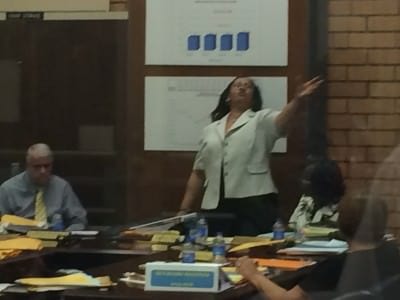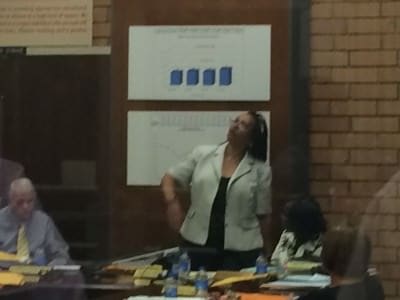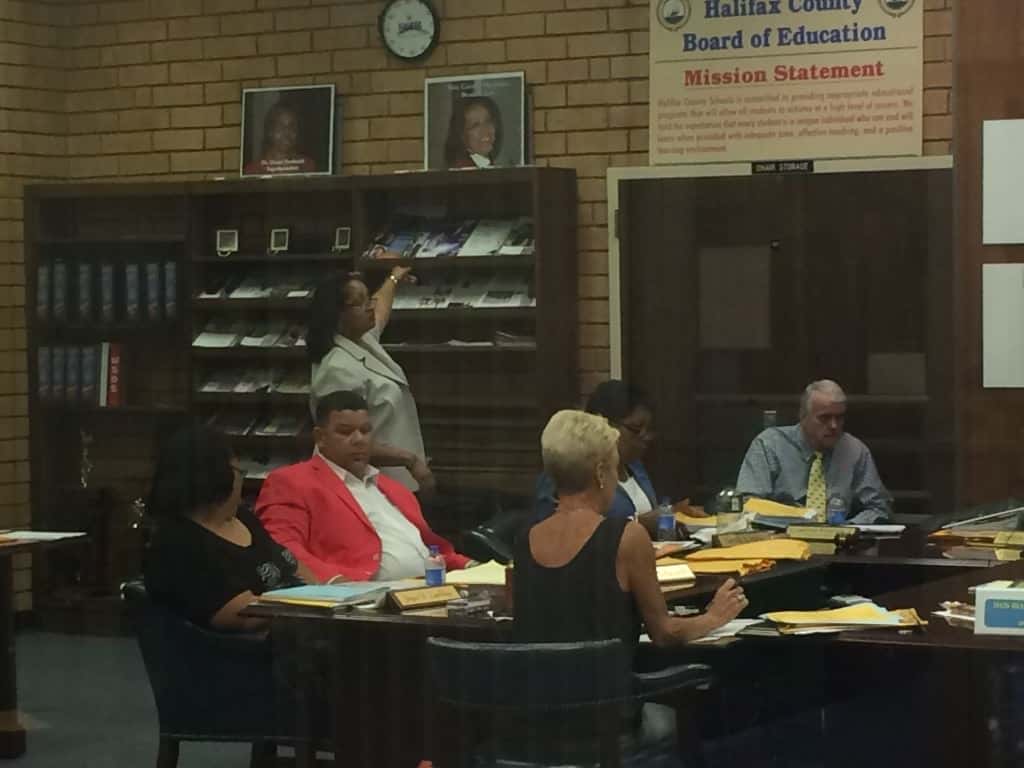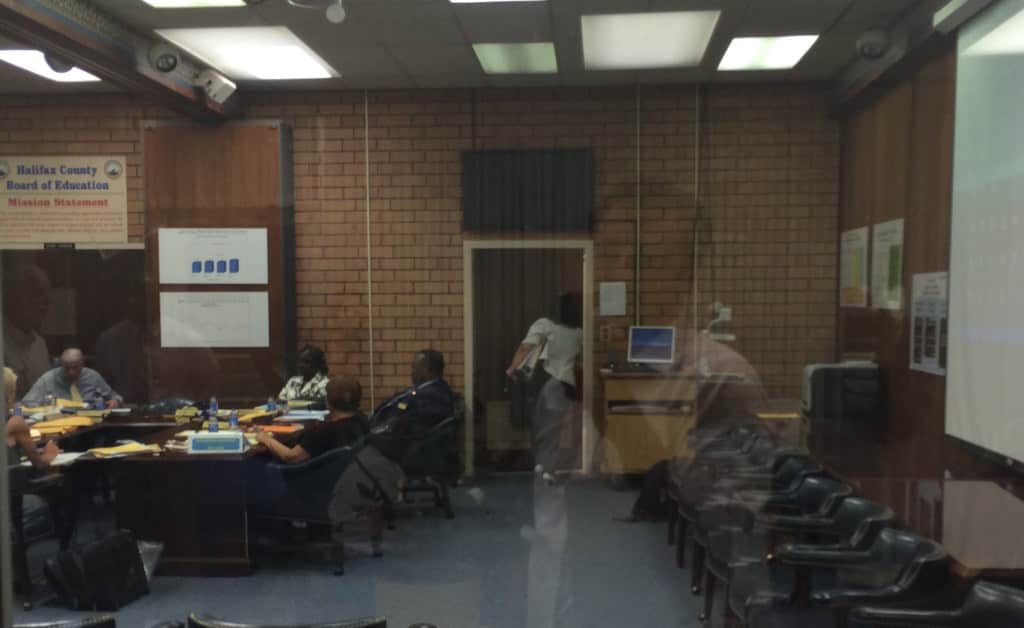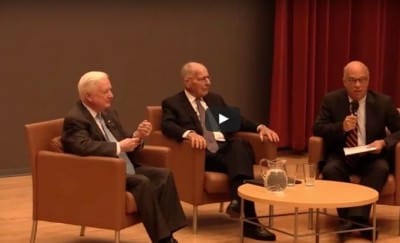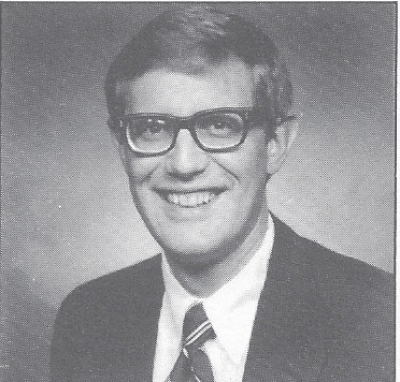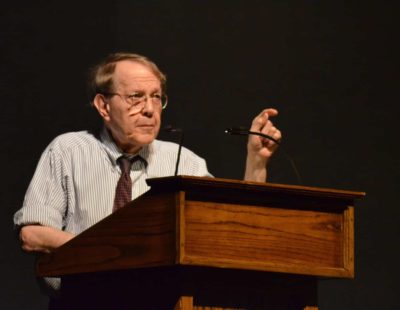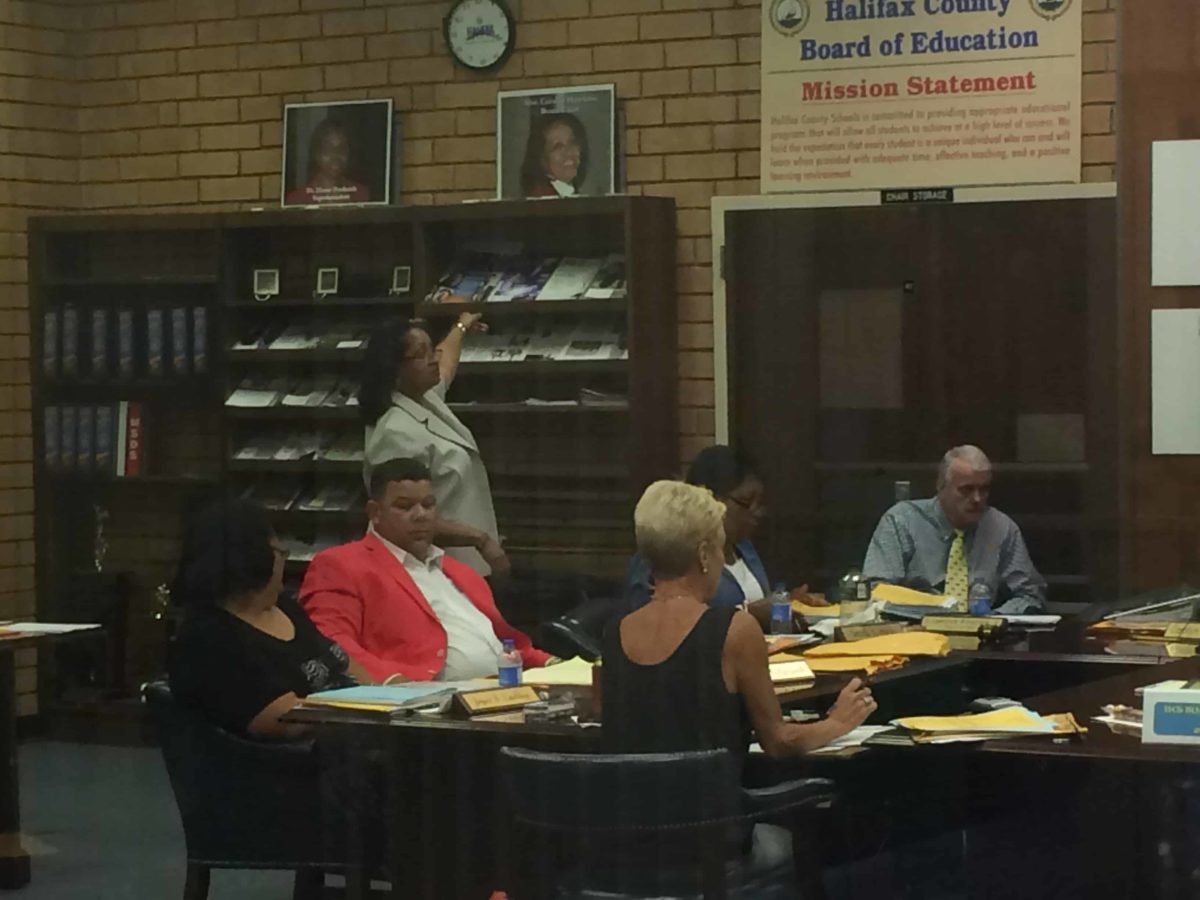
During the latest round of hearings last week in the Leandro lawsuit, one topic came up again and again: local school boards and when they interfere with education.
Sitting there in Judge Manning’s courtroom and listening to the testimony about local boards, my mind went back again and again to a school board meeting earlier this month in Halifax County.
At the Leandro hearing, Dr. Pat Ashley, former director of District and School Transformation at DPI, testified about the impact of boards that are more concerned with personal priorities than the education of students. She criticized local boards that spend the bulk of meetings discussing anything but student achievement. She said she had witnessed boards ignoring superintendent recommendations on principal hiring in favor of personnel board members preferred.
Rebecca Garland, Deputy State Superintendent, said in the last day of testimony that student education would be improved if the state Board had more power to intervene when local school boards don’t have the best interest of students at heart.
And, as Ann McColl wrote on our website, Judge Manning had some harsh words to say about obstreperous local boards of education.
“I would like to remove a whole bunch of school boards — but I can’t do it — because they don’t do anything but worry about the employment opportunities for friends and not what’s happening in the classroom. Let’s get it out in the open. We know exactly who they are and where they are and they continue to exist and they don’t need to be between the teachers and the superintendent and threaten the superintendent. They don’t need to be there. They need to be gone. Hopefully the legislature will give the State Board of Education the tools to get rid of those obstreperous people and then let the superintendent worry about students, rather than his or her job or who gets the Drivers’ Ed job in x county.”
Former member of the State Board of Education and member of the Charlotte-Mecklenburg Board of Education John Tate also weighed in on this issue with EdNC.
Recently, I have been attending the Halifax Board of Education meetings. At July’s board meeting, elections were to be held on board leadership — who gets to be chair, co-chair, etc. Current board chair, Carolyn Hawkins, had moved the elections to the end of the agenda — something two members of the board, Joyce Lashley (now vice-chair) and Charles Hedgepeth, said was odd. They disapproved and wanted the elections moved back to the beginning of the meeting. Hawkins objected.
“I would appreciate so much if you would just carry out this agenda as planned,” Hawkins said. “Can you do that for me? Can you do that for me?”
They relented and the meeting began. Hawkins proceeded to discuss her tenure as board chair, pointing out that she had allowed board members to create committees. But, she said, some board members had taken the responsibility seriously while others didn’t.
Here is an unedited video of Hawkins.
Eventually, Hawkins began to talk about a committee headed by board member Claude Cooper, who then stood up and showed a photo slideshow and presentation illustrating how involved Hawkins is in Halifax schools.
After the slideshow, Hawkins continued. At this point, there had been little progress in the agenda. In the middle of Hawkins’ speech, another board member, Susie Lynch-Evans, asked to go into closed session.
Hawkins asked why. Lynch-Evans said she would explain in the closed session.
It appears there likely were two violations of the Open Meetings Law. First, before a public body can go into closed session, a motion must be made and passed that identifies the specific, statutory basis for the closed session. That was not done in this case. That absence of the statutory basis for the closed session is especially problematic, because it is not readily apparent what open meetings exemption even could have applied. It appears the topic of the closed session may have been the election of the board chair. The so-called personnel exemption only allows closed-session discussion of employees, though, and explicitly excludes discussion of the members of a public body itself. To the degree the topic discussed in closed session was the removal of Ms. Hawkins as the chair, that was a second violation of the Open Meetings Law.
The public was escorted from the room. While I could not hear what happened in the closed session, I could see through the glass doors. Here are photos of Hawkins that I took.
At one point, Hawkins walked over to where her photo hung on the wall, pointed at it, and eventually members of the board helped her get it down.
Then, she organized her things and left the room.
When the closed session ended, the board came back into open session and board member Debbie Hardy sat in the seat formerly occupied by Hawkins. Hardy apologized for the inconvenience, and the meeting went on as though nothing happened. The incident was not addressed again. Hardy was elected board chair near the end of the meeting.
After the meeting, the board members were hesitant to discuss the incident. Cooper was the most open and said this about what happened with Hawkins:
“I don’t know did someone say something to her to make her think the election wasn’t going to go… I don’t know,” he said. “Just emotions. She’ll be fine tomorrow.”
What, if anything, does this have to do with student achievement or the opportunity for students to access a sound, basic education? You decide.
Here are the members of the Halifax Board of Education.
Here is the agenda of the Halifax Board of Education on July 6, 2015.
N.C. General Statute § 143-318.11.
A public body may hold a closed session and exclude the public only when a closed session is required:
– – –
(a)(6) To consider the qualifications, competence, performance, character, fitness, conditions of appointment, or conditions of initial employment of an individual public officer or employee or prospective public officer or employee; or to hear or investigate a complaint, charge, or grievance by or against an individual public officer or employee. General personnel policy issues may not be considered in a closed session. A public body may not consider the qualifications, competence, performance, character, fitness, appointment, or removal of a member of the public body or another body and may not consider or fill a vacancy among its own membership except in an open meeting. Final action making an appointment or discharge or removal by a public body having final authority for the appointment or discharge or removal shall be taken in an open meeting.
– – –
(c) Calling a Closed Session. — A public body may hold a closed session only upon a motion duly made and adopted at an open meeting. Every motion to close a meeting shall cite one or more of the permissible purposes listed in subsection (a) of this section. A motion based on subdivision (a)(1) of this section shall also state the name or citation of the law that renders the information to be discussed privileged or confidential. A motion based on subdivision (a)(3) of this section shall identify the parties in each existing lawsuit concerning which the public body expects to receive advice during the closed session.


